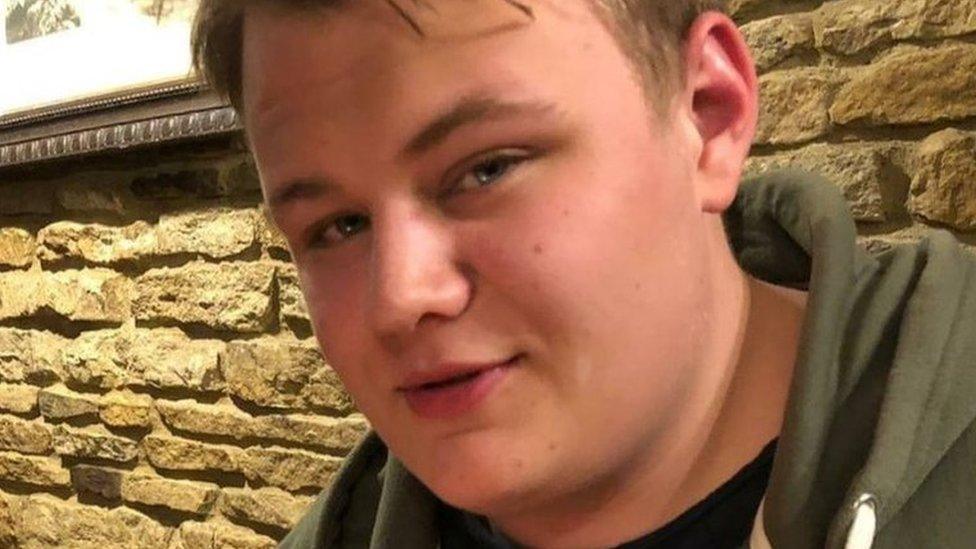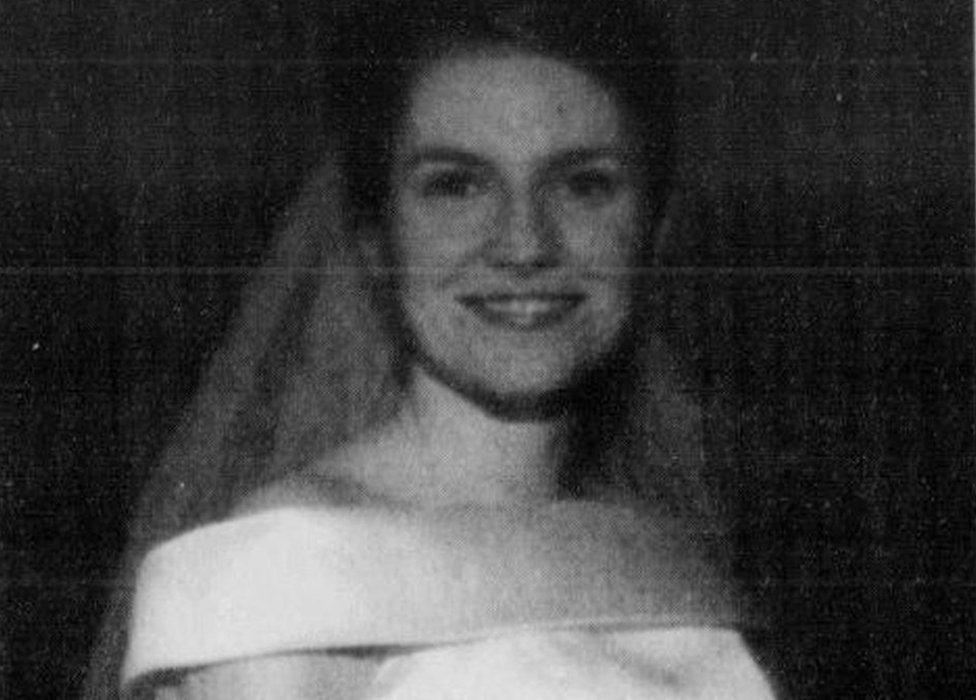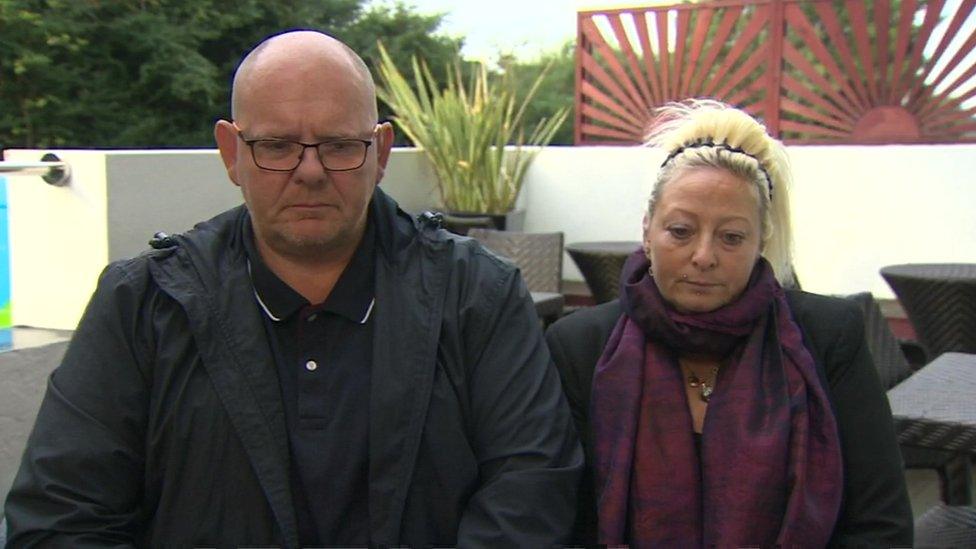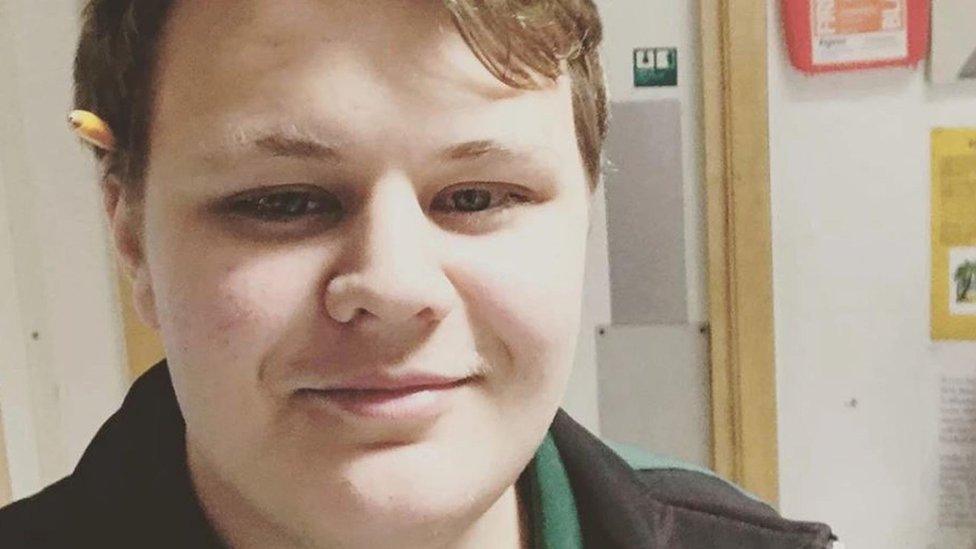Harry Dunn: Anne Sacoolas immunity 'absurd' says diplomacy expert
- Published

Harry Dunn, 19, died in hospital after his motorbike was in a crash near RAF Croughton
Did Anne Sacoolas, the wife of a US intelligence officer in Britain, have diplomatic immunity when she allegedly killed Harry Dunn in a road accident in Northamptonshire last August?
Harry's parents insist that she didn't, and that she can be tried for causing his death.
The Foreign Office and the US embassy in London argue that she did.
Now one of Britain's top experts on diplomacy has poured scorn on the British and American argument.
The Dunns' lawyers, headed by Geoffrey Robertson QC, asked Sir Ivor Roberts, a former British ambassador in Serbia, Ireland and Italy, for his opinion. After retiring from the diplomatic service Sir Ivor was head of Trinity College, Oxford.
His report on the arguments produced by the British and US governments, which I have read, is remarkably strongly worded.

Anne Sacoolas, pictured on her wedding day in 2003, cited diplomatic immunity after the crash outside RAF Croughton
Mrs Sacoolas's husband was an American intelligence officer based at RAF Croughton. That gave him a certain level of diplomatic immunity. The British and US governments maintain that this meant that, as his wife, Mrs Sacoolas had immunity too.
Sir Ivor says this is "a palpable absurdity".
He quotes a letter of agreement between the Foreign Office and the US ambassador to Britain in August 1995 about the American personnel at RAF Croughton. This says explicitly that diplomatic immunity for people like Mr Sacoolas would not apply for "acts performed outside the course of their duties".
If Mr Sacoolas wasn't covered for acts outside his duties, Sir Ivor says, it would be absurd for Mrs Sacoolas, who had no official position, to be immune from prosecution when her husband wasn't.
He doesn't mince his words. "It was clearly not anticipated that this agreement might be dishonourably challenged by the US government through their embassy in London," he says.

Tim Dunn and Charlotte Charles are going through "torture", says their son Niall
In Sir Ivor's view both the British and US sides knew that back in 1995 they had agreed that "both agents and their dependants" were subject to British criminal law in their non-work activities at RAF Croughton.
For the Americans to argue the opposite would, he said, be regarded by professional diplomats as a breach of good faith.
Words and expressions like "palpable absurdity", "dishonourably" and "breach of good faith" are rare from a top expert on diplomacy.
Although the judges at the High Court agreed that Sir Ivor was a leading figure in the study of diplomacy, they did not accept his report on the technical grounds that he was not a practising lawyer.
They rejected an application by the Dunns to force the Foreign Office to disclose evidence relating to a "secret agreement" between the US and British governments.
But this was a preliminary hearing, and it seems reasonable to assume that Sir Ivor's scathing opinion of the case presented by the Foreign Office and the US embassy will have an influence on the case as it continues.
In a statement, the Foreign and Commonwealth Office said: "Anne Sacoolas held diplomatic immunity on arrival in the UK on 24 July until her departure from the UK.
"Under the Vienna Convention on Diplomatic Relations, any waiver of immunity must be express.
"The historic arrangements covering Croughton contained no such waiver for family members.
"We are committed to revising this anomaly in the arrangements at Croughton so they cannot be used in this way again."
- Published12 May 2020

- Published5 May 2020
